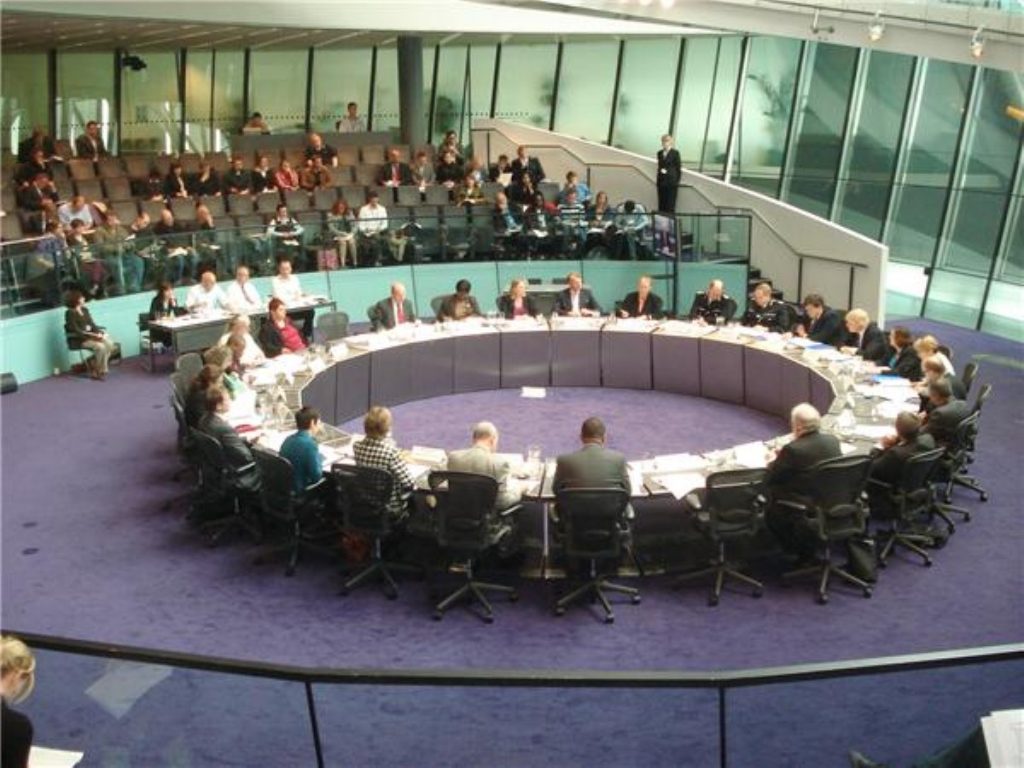Phone-hacking inquiry presents ‘corporate risk’ to the police
By Ian Dunt
A “corporate risk” to the police service could emerge if the investigation into phone-hacking is managed badly, the head of the Met has been told.
During a stormy session at the Metropolitan Police Authority, acting commissioner Tim Godwin promised a new investigation into the allegations would be “robust” and “full”.
The developments came as former Olympics minister Tessa Jowell revealed she had contacted police about over concerns her phone had been targeted just last week.


Meanwhile, Lord Fowler called for a “full scale inquiry” into the row in a debate in the House of Lords, during which former deputy prime minister John Prescott branded hacking a “human rights issue”.
The Metropolitan Police Authority meeting came a day after Scotland Yard confirmed it would re-open the case following the emergence of “significant” new evidence.
There has been widespread criticism of the Met’s handling of the case from major political figures.
Labour MP Tom Watson, former Downing Street director of communications Alastair Campbell, Lord Prescott and energy secretary Chris Huhne have all raised concerns about police’s attitude to the case.
“As a result of that new information and evidence [from the News of the World] we launched a new investigation to consider that material and take the line of inquiry forward and carry out a robust investigation,” Mr Godwin said.
“We are not afraid of being held accountable for the decisions we take.
“The reality we have today is that there’s a full, live investigation under way.”
The acting commissioner said there could be no investigation into how the Met handled the inquiry until after the investigation is over.
“There will be questions that people will want to be asked and they will be answered. That has to be done at the end of the process,” he said.
But members of the Metropolitan Police Authority were quick to attack the way the case had been managed and suggest that the force should hand over the case to an independent body.
Labour member John Biggs argued that the reputation of the police rested on the way it now conducted the investigation.
“There is a corporate risk to the police service in London if this is managed badly,” he said.
“It might be unfair. But if there is a perception, however unfounded, that things have been suppressed then that would damage the reputation of the police service.
“It’s about the police service being seen as beyond criticism, being independent of lobbying or politicians. It’s really important we get that right.”
Liberal Democrat member Dee Doocey said: “I have real reservations about the Met conducting this inquiry because I don’t think it will be seen to be independent.”
Green member Jenny Jones added: “With the new investigation, how can we be sure there’s no fear or favour in the way it moves?
“How can we be sure you’re not getting pressure from politicians or journalists?
Independent member Cindy Butts said: “The elephant in the room is whether or not the evidence that came to light is evidence that should have been uncovered in the original investigation.
“It’s something we can’t assess from where we sit. But it’s something you can asses where you sit. If it’s evidence that should have been uncovered in 2005 or 2006, that’s when you have to say: ‘we can’t keep doing this, we have to hand it over to someone else’.”
Assistant commissioner John Yates, who was widely criticised in 2009 for failing to act on a Guardian investigation which suggested the practise was widespread at the News of the World, stood by his earlier decision at the meeting.
“I was asked by Sir Paul Stephenson to establish the facts, not to review the case,” he said.
“The plain fact was that while the material was new to the media it wasn’t new to us. It didn’t constitute new evidence.”
The issues around phone-hacking have started to unravel at an alarming rate since the resignation of Andy Coulson, Downing Street director of communications, on Friday.
The handing-over of evidence from the newsroom suggests the paper’s internal investigation has stepped up a gear and that its owners are no longer prepared to rely on their insistence that the practise was confined to one rogue journalist.
But BBC reports of a phone hacking incident last year were met with a stern response from the newspaper, which said there was no evidence to substantiate them.












